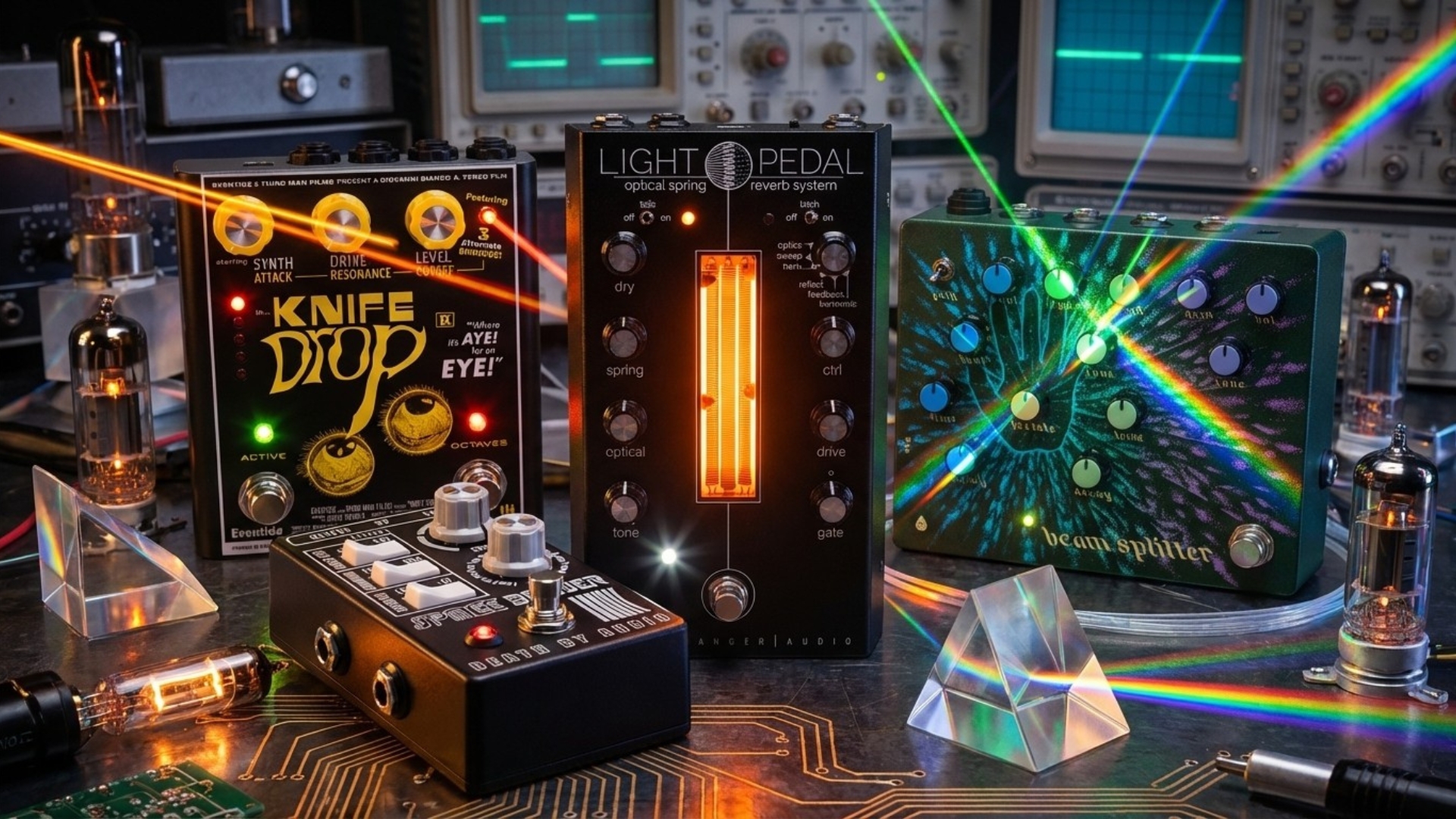Watch a 17-year-old John Frusciante shred like a hair-metal guitar hero in newly unearthed footage
One year before he joined the Red Hot Chili Peppers, Frusciante could be found tearing up the fretboard of a Kramer-inspired SuperStrat with two-hand tapping, blinding legato and Floyd Rose whammy bar squeals

John Frusciante is regarded as one of the pre-eminent guitar heroes of the past three decades – a position he attained thanks to his melodic, tasteful playing style, which always bears the rest of his Red Hot Chili Peppers bandmates in mind. Yet, as he’s attested in interviews, his style had far flashier origins – and now we finally have evidence of his shred roots.
Newly unearthed footage, posted to YouTube, shows an apparently 17-year-old Frusciante shredding like you’ve never seen him shred before, performing with his pre-RHCP power trio IKE in San Fernando Valley, 1987 – the video was shared by Matthew Goodman, one of the founding members of the band, who has teased more videos from this era.
Wielding a Kramer-inspired electric guitar custom-built by LA’s Performance Guitar, Frusciante’s playing is, in short, unrecognizable, despite the fact he would join RHCP just one year later.
Frusciante’s high-gain solos run the gamut of ’80s guitar excess: two-hand tapping (both above and behind the fretting hand); harmonic squeals manipulated by a Floyd Rose tremolo; and legato – so much legato – with liberal use of wah-wah throughout.
The clip ends with the band covering The Surfaris’ Wipe Out, on which John deploys a Strat-style guitar for some quicksilver pentatonic licks.
Elsewhere in the footage, there’s a snippet of high-gain riffs over a slap bassline, which hints at Frusciante’s funk-metal approach on his first album with the Red Hot Chili Peppers, 1989’s Mother’s Milk – especially raucous opener Goodtime Boys.
Froosh would even wield that very same Performance SuperStrat at some of his earliest shows with the Chili Peppers – as documented in the below clip of Punk Rock Classic, recorded at Long Beach in 1988.
All the latest guitar news, interviews, lessons, reviews, deals and more, direct to your inbox!
On a purely technical level, Frusciante’s ability – which, at the time, was inspired by the likes of Steve Vai, Randy Rhoads and Eddie Van Halen – is undeniably impressive, but we think he’d agree with us when we say it’s hard to make out anything melodic over the relentless wailing.
The dramatic shift in Frusciante’s guitar style is something he discussed in our marathon interview with the RHCP guitarist last year.
I figured out pretty quickly that I couldn’t rely on my technique – music doesn’t really mean anything to people unless you’re really giving something of yourself in it
John Frusciante
“When I was 18 and the early part of being 19, I was trying to be impressive, because I could play fancy things, or because I could be intense,” he admitted.
“That never left, but I figured out pretty quickly that I couldn’t rely on that ability to be intense and I couldn’t rely on my technique – music doesn’t really mean anything to people unless you’re really giving something of yourself in it and putting yourself out there in a vulnerable way. Not trying to show people, ‘Hey, watch me, I’m good,’ but to give people a piece of your heart.”
This realization prompted Frusciante to rethink his approach – a change that ultimately benefited him and the Red Hot Chili Peppers as a whole.
“It was a switch that took place right after we got off tour for Mother’s Milk,” he explained.
“I just decided, if I keep going the way that I’m going, I’m never going to be happy with anything that I do, so I have to give up my ideas of what good is and I just have to try to be myself and figure out what that is – and stop trying to be what I think people want me to be, or what I think the Chilis are supposed to be. I have to try to just figure out: ‘Who am I?’”
While the 17-year-old John Frusciante is not the tasteful guitar hero he would go on to be, the footage does offer a fascinating insight into his level of technical self-restraint, which is lifted sparingly in his solo spots nowadays – most notably on last year’s Eddie Van Halen tribute, Eddie.
There’s a lesson to be learned for all guitarists here: technical ability is all well and good, but it must always be matched with a melodic quality that can resonate with audiences.
“Generally, when I put away all those ideas of trying to be ‘good’, or trying to impress people, a thing that I can’t explain from my soul started to come out of my playing,” Frusciante told us.
“People started liking my playing a lot more at that point; I started to mean something to people.”

Mike has been Editor-in-Chief of GuitarWorld.com since 2019, and an offset fiend and recovering pedal addict for far longer. He has a master's degree in journalism from Cardiff University, and 15 years' experience writing and editing for guitar publications including MusicRadar, Total Guitar and Guitarist, as well as 20 years of recording and live experience in original and function bands. During his career, he has interviewed the likes of John Frusciante, Chris Cornell, Tom Morello, Matt Bellamy, Kirk Hammett, Jerry Cantrell, Joe Satriani, Tom DeLonge, Radiohead's Ed O'Brien, Polyphia, Tosin Abasi, Yvette Young and many more. His writing also appears in the The Cambridge Companion to the Electric Guitar. In his free time, you'll find him making progressive instrumental rock as Maebe.
